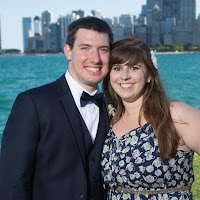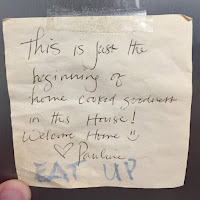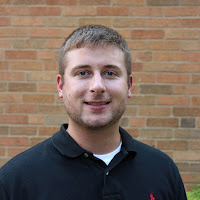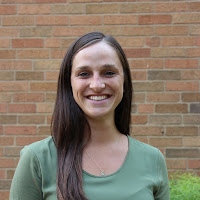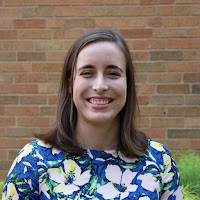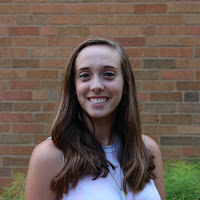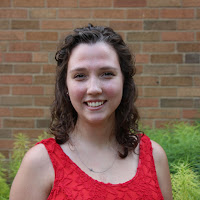Earlier in the year, on a cold and windy Sunday in March I was sitting in a Starbucks after mass at Old St. Pat’s. Sitting across from me was my now fellow second year Volunteer, Melissa (Mel), drinking a raspberry mocha. We had both heard we were considering staying for a second year, so we decided to go to mass and get coffee together, as well as check in about our discernment process. There we talked about why staying for a second year was on our minds. I remember being nervous and unsure of what my future looked like.
Our conversation unfolded over the coffee. We shared low and high points from our year thus far and listened intently to what brought us to this table. We laughed and were stunned by the parallels of our lives. I shared what I saw as the positives for doing a second year:
- New placement - My placement last year left me wanting more. I spent most of my days in the office, sitting in my cubicle, staring at my computer, sending emails, and making phone calls. Spending time with partners, customers, and going out on deliveries were my favorite ways to spend my days while at Top Box. Although I didn’t mind office life, I realized I wanted to interact more with people. Doing a second year would give the opportunity to work in a place where I could do that.
- Continue to live in community - Having gone to the University of Dayton, where community is preached daily, the importance of community has been ingrained in me. Living in community is something I have really enjoyed doing as well. Don’t get me wrong, it’s hard. A tough day at work paired with coming home to the leaning tower of dirty dishes and not feeling like sharing about your day, can make community hard some days. But then there are wonderful moments and days, like belly laughing at dinner, the endless inside jokes or spending the evening exploring. Community is raw, goofy, laughter-filled, taxing, loving, real, and messy. I wanted to continue living in the mess.
- Transition - My transition from Cincinnati to Chicago had been challenging. I missed my family, Ohio, and my friends who had decided to stay in Ohio after college. Transitioning here at the beginning of my first year was difficult due to how new everything was. New state, new city, new job, new people, new transportation… a very new life. But, staying in Chicago and doing a second year I would be able to focus my energy on work and community because it wouldn’t be new anymore.
 |
| Mel and Emma during Amate House orientation, August 2017. |
Flash forward to October where I am now about two months into my second year and gearing up for fall retreat. I currently am sitting with my community members listening to Mel read an Edgar Allen Poe story as a way to prepare for Halloween. My second year is taking shape.
I am now placed at Girls in the Game, where I am the Teens Program Coordinator. I spend three days a week at three Chicago area high schools where I coach girls on being leaders through sports, health, and leadership. My time is spent playing games with middle schoolers, interacting with teens, finding the connection between social justice and movement, learning new behavior management and strengths-based strategies, and so much more. Community life stands to be an adapting, wonderful, colorful mess. I feel like I am learning more about myself and community members every day, which is exciting and occasionally exhausting. Transitioning back to Chicago has been generally smooth, only minor bumps and scrapes. It’s been very helpful to have a fellow second year around who is supportive and relates to my past Amate experiences.
 |
| Emma's current community during orientation. |







